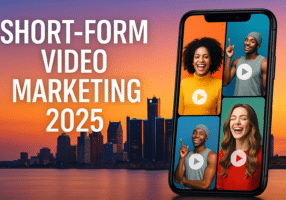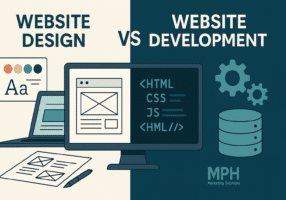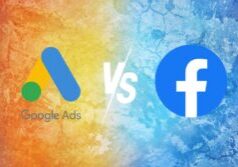Digital advertising is essential for businesses looking to grow their online presence and attract customers. Two of the biggest platforms for online advertising are Google Ads and Facebook Ads, each offering unique advantages. But which one is right for your business? The answer depends on your goals, budget, target audience, and industry. In this blog, we’ll break down the key differences, advantages, and best use cases for both Google Ads and Facebook Ads to help you make the best decision.
Understanding Google Ads
Google Ads operates on a pay-per-click (PPC) model, allowing businesses to bid on keywords so their ads appear at the top of Google search results. When a user searches for a relevant term, Google displays paid ads alongside organic search results. Google Ads also extends to YouTube, Google Display Network, and Google Shopping.
Advantages of Google Ads
- High Intent Traffic: Google Ads targets users actively searching for products or services, meaning they are more likely to convert.
- Wide Reach: Google processes over 8.5 billion searches per day, providing an enormous audience.
- Diverse Ad Formats: Businesses can use text ads, display ads, shopping ads, and video ads.
- Measurable Results: Detailed analytics allow businesses to track performance and optimize campaigns for better ROI.
- Competitive Edge: Ranking at the top of Google search results can drive significant traffic and establish credibility.
Best Use Cases for Google Ads
Google Ads is best suited for businesses that:
- Provide services or products that people actively search for (e.g., plumbing, legal services, roofing, or e-commerce stores).
- Have a strong website and landing pages optimized for conversions.
- Need immediate visibility in search results to generate leads or sales.
Understanding Facebook Ads
Facebook Ads operates on a pay-per-impression or pay-per-click model within Meta’s platforms, including Facebook and Instagram. These ads are highly visual and rely on audience targeting rather than keyword intent.
Advantages of Facebook Ads
- Advanced Audience Targeting: Facebook Ads allow businesses to target users based on demographics, interests, behaviors, and past interactions.
- Visual Appeal: Image, video, carousel, and interactive ads make Facebook an engaging platform for brand awareness.
- Cost-Effective: Facebook Ads often have a lower cost per click (CPC) than Google Ads, making them ideal for businesses with smaller budgets.
- Brand Awareness & Engagement: Facebook Ads are effective for businesses that want to increase brand recognition and customer interaction.
- Remarketing Capabilities: Businesses can retarget users who have previously visited their website, increasing the chances of conversion.
Best Use Cases for Facebook Ads
Facebook Ads work best for businesses that:
- Sell visually appealing products, such as clothing, beauty products, home decor, or fitness gear.
- Want to build brand awareness and engage with their audience.
- Rely on impulse buying rather than search-driven intent.
- Have strong content marketing strategies, such as video ads, customer testimonials, or storytelling campaigns.
Google Ads vs. Facebook Ads: Key Differences
| Feature | Google Ads | Facebook Ads |
|---|---|---|
| Targeting | Keyword-based (search intent) | Interest and behavior-based (social engagement) |
| Ad Format | Text, display, shopping, video ads | Image, video, carousel, and interactive ads |
| User Intent | High intent (users actively searching) | Passive intent (users browsing social media) |
| Cost Structure | Pay-per-click (PPC) | Pay-per-click or impression-based (CPM) |
| Best For | Lead generation, direct conversions | Brand awareness, audience engagement |
Which One is Right for Your Business?
The best platform for your business depends on your specific needs:
- Use Google Ads if you need immediate results and want to capture customers actively searching for your products or services.
- Use Facebook Ads if you want to build brand awareness, engage your audience, and promote visually-driven products.
- Use both if your budget allows and you want to create a full-funnel marketing strategy that captures both search intent and social engagement.
Final Thoughts
Both Google Ads and Facebook Ads are powerful tools that serve different purposes. Google Ads excels in capturing high-intent users, while Facebook Ads is unmatched in audience targeting and engagement. The key to success is understanding your business goals, testing different ad strategies, and optimizing your campaigns based on performance data. If you need expert guidance in choosing the right platform, MPH Marketing Solutions can help. Contact us today to develop a tailored digital advertising strategy that drives real results.
Lets Talk










